The Missing US
The Missing US Project is more than a research lab. It is a collaborative project that includes researchers, policymakers, and community members with a shared goal: to improve our understanding of and responses to established and emerging epidemics among vulnerable and marginalized populations. The idea for this project is predicated on the notion that there are overlooked populations and hidden structural risk factors for diseases such as substance use disorders and HIV that limit our ability to end these epidemics. Fundamentally, we believe that we cannot reach people we do not know exist and are at risk. The Missing US is a collaborative, community-engaged project that merges community voices and lived experience with innovative data science and epidemiological methods to provide a more complete ground-to-cloud picture of the public health landscape than ever before.
Our team includes decision scientists, epidemiologists, and community-engaged researchers who have specific expertise in some of the most important issues of our time:
- Substance use and overdose
- Emerging infectious diseases
- Homelessness and housing insecurity
- Mental health and suicide
- Criminal justice reform
We work with local and national organizations, community activists, policymakers, and people with lived experience to integrate data-driven approaches into everything from patient care to guidelines to new legislation.
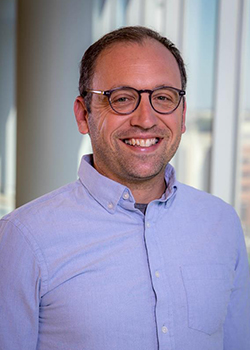
Joshua Barocas, MD
Director of The Missing US
Associate Professor
Josh Barocas is an Associate Professor, infectious diseases physician, PI of The Missing US Lab Project, and Director of the Social Determinants of Health and Disparities Modeling Unit at CU. He leads an interdisciplinary research program that is specifically aimed at the goal of improving health outcomes for marginalized populations who are at high risk for overdose, and infectious diseases such as HIV, hepatitis C virus, and injection-related bacterial infections. His research, which uses a combination of clinical epidemiology, health economics, simulation modeling, and cost-effectiveness, informs clinical decision making and health policy. He is engaged in research using these innovative methods to help understand the impact of and improve upon policies that affect people who use drugs. He has received funding from the National Institutes on Drug Abuse, including the prestigious Avenir Award. He has developed a microsimulation that simulates the natural history of injection drug use and projects the long-term outcomes such as overdose, endocarditis, and skin infections. I have also used longitudinal data from across the US to answer salient research questions. He serves as an Associate Editor for the International Journal of Drug Policy. He has published extensively in high impact journals including New England Journal of Medicine, JAMA, Annals of Internal Medicine, and Lancet Public Health. His work has been featured in multiple media outlets including The Boston Globe, NPR, The New York Times, among others.
Joshua Barocas's Profile
Collaborators
Kate LeMasters, PhD
Assistant Professor
Kate is an Assistant Professor. She is a social epidemiologist and a mixed methods researcher, focusing on how the system of mass incarceration creates and exacerbates health inequities at the individual and community levels. She is particularly focused on how mental health issues are created and exacerbated by criminal legal involvement, and how the carceral system affects overdose risk and substance use patterns. Given the many critical ways that carceral involvement affects health, her work has also focused on HIV prevention, COVID-19 spread, labor policies, solitary confinement, and healthcare access for this population. Trained as a community engaged researcher, she aims for her work to be based in partnership with and in response to community members and organizations. Kate is also a scholar with the Lifespan/Brown Criminal Justice Research Training Program on Substance Use and HIV, and has received funding from the National Institute on Minority Health and Health Disparities and the National Institute on Drug Abuse. She has published in journals such as the American Journal of Epidemiology, Epidemiology, Lancet Public Health, and AIDS and Behavior and her work has been featured in outlets such as Undark.
Kate LeMasters's Profile

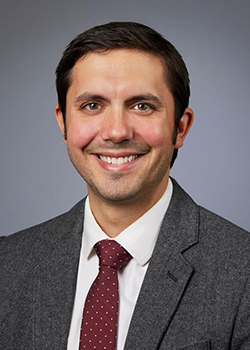
Paul J. Christine, MD, PhD
Assistant Professor
Paul is an Assistant Professor of Medicine at the University of Colorado School of Medicine and Denver Health where he practices general internal medicine and addiction medicine. Trained as a social epidemiologist, his research focuses on the effects of health and social policies on the availability and quality of care for individuals with substance use disorders. He is particularly interested in researching and advocating for policies that improve outcomes for individuals enrolled in Medicaid and other safety net programs.
Paul J. Christine's Profile
Other Program Staff
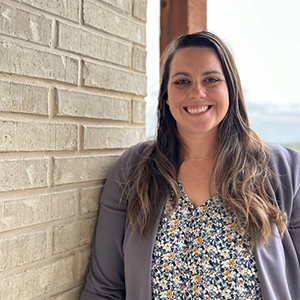
Danielle Kline
Research Services Manager
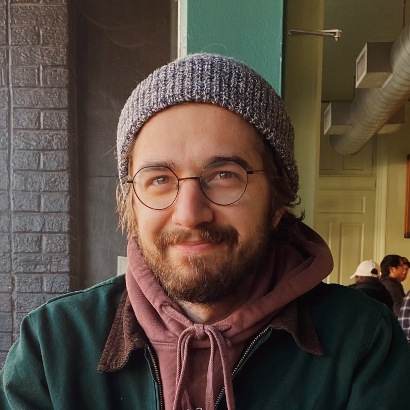
Cole Jurecka
Research Assistant and Project Manager

Kristina Yamkovoy
Research Analyst
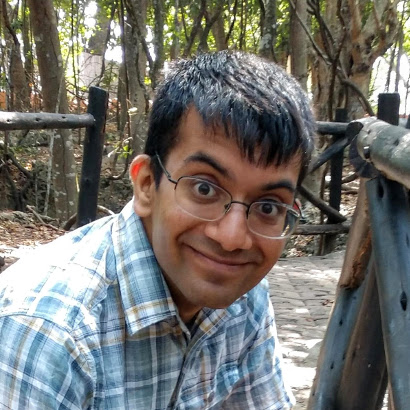
Pranav Padmanabhan
Research Assistant

Matthew Westfall
Medical Student

Samantha Nall
Medical Student
.webp?sfvrsn=1ce993bb_0)
Xiaoyu Guan
Senior Information Science Professional
